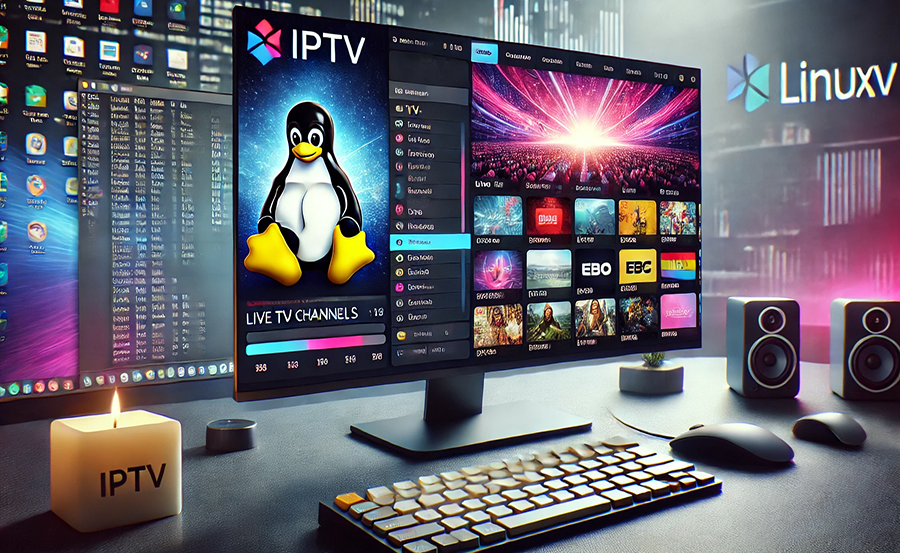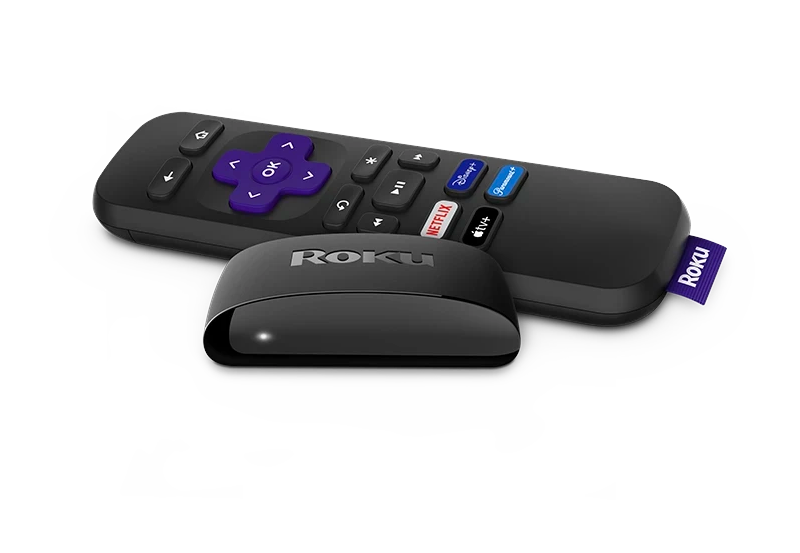In our connected world, IPTV has swiftly emerged as a favorable medium for streaming television content. With the increase in digital consumption, Linux users find themselves facing a unique set of challenges, particularly the notorious problem of IPTV buffering. This article aims to explore the causes and delve into viable solutions for a seamless viewing experience, enhancing your IPTV enjoyment effortlessly. But let’s not mince words—buffering isn’t just annoying; it can feel like a never-ending digital hiccup that disrupts your favorite shows and movies. So, how do we tame this buffering beast?
Buy 1 Year IPTV Subscription and Enjoy Unlimited Content
Understanding IPTV and Linux Environment
What Is IPTV?
Internet Protocol Television, or IPTV, is a method of delivering television content over the internet, bypassing traditional satellite or cable formats. This technology allows users to stream media directly to their devices, providing flexibility and choice. With countless IPTV subscriptions available, such as the top IPTV subscriptions tailored specifically for streaming movies, users can access an array of content on-demand, making it a popular choice among tech-savvy viewers.
But despite its advantages, IPTV is not without its pitfalls. Buffering stands as a prominent issue, especially on Linux systems. Understanding why this occurs requires a closer look at both the technological underpinnings of IPTV and the Linux operating environment.
Expert Advice:
Get access to thousands of channels worldwide with XtremeHD IPTV, designed for sports lovers and movie enthusiasts.
The Linux Ecosystem
Linux, an open-source operating system known for its stability and versatility, is favored by many tech enthusiasts. It’s highly customizable, which is both its strength and a potential source of complexity. This flexibility can sometimes lead to compatibility and performance issues, particularly when streaming content. Some IPTV services may not be fully optimized for Linux, leading to the dreaded buffering trend. For users seeking the best IPTV for streaming movies, ensuring compatibility with Linux is crucial to minimize interruptions.
By understanding Linux’s strengths and limitations, users can better navigate these challenges. While Linux provides a robust platform, it requires more hands-on management than more mainstream operating systems, especially when fine-tuning for IPTV use.
Common Causes of IPTV Buffering
Internet Connection Issues
At the forefront of IPTV buffering issues is the internet connection. A stable, high-speed connection is the backbone of efficient streaming. Many users underestimate the bandwidth requirements of high-definition IPTV services, opting for basic internet packages that simply can’t keep up. This oversight can lead to frequent buffering, particularly during peak viewing hours.
To alleviate this, users should monitor their internet speed and upgrade their plan if necessary. A good rule of thumb is ensuring that your connection can comfortably handle streaming multiple high-definition streams at once, especially if you’re part of a household with heavy data usage.
Network Congestion
Just like a traffic jam on your morning commute, network congestion is another contributor to buffering. This happens when too many users attempt to access the internet through a particular ISP or network hub simultaneously. The network infrastructure may not be able to handle the load, resulting in slower internet speeds and subsequent buffering.
Linux users can check for network congestion using system monitoring tools that reflect real-time data usage. Reducing the number of devices using the network or opting to stream during off-peak times can also mitigate this issue.
Outdated Software and Drivers
Technology evolves rapidly, and using outdated software or drivers can significantly impair streaming performance on a Linux system. Each update to software or drivers usually includes performance enhancements and bug fixes, which are vital for maintaining optimal IPTV performance.
Linux users should regularly update their systems and ensure all streaming applications and drivers are current. Although Linux updates are often manually initiated, this crucial step can greatly improve streaming quality, reducing instances of buffering.
Server-Related Problems
Sometimes, the problem isn’t on your end. IPTV service providers host their content on servers, and if these servers experience high demand or technical issues, buffering can ensue. This can be especially common with lesser-established IPTV providers offering tantalizingly cheap subscriptions.
Choosing a reliable provider with top IPTV subscriptions can minimize such server-related issues. Established providers often invest in robust infrastructure to ensure their servers can handle high traffic without hindering performance.
Solutions to Minimize IPTV Buffering on Linux
Enhancing Internet Speed and Stability
Given that many buffering problems stem from inadequate internet connections, improving your network is a basic yet effective measure. Consider the following tips:
- Upgrade your internet plan to a higher speed tier if your current package is insufficient.
- Use a wired connection instead of Wi-Fi to reduce latency and ensure consistent speed.
- Position your router in a central location to maximize signal coverage.
- Invest in a modern router with advanced features like Quality of Service (QoS) settings.
These adjustments can collectively bolster your network’s ability to handle IPTV streams without persistent buffering interruptions.
Customizing Linux System Settings
Linux offers extensive customization options, allowing users to tweak system settings for optimal performance. Here are a few adjustments to consider:
- Prioritize processing power for streaming applications using system management tools.
- Adjust your buffer size settings, often found in media player configurations like VLC.
- Increase the priority of your media player process to allocate more resources to it.
These changes, though technical, can make your Linux environment more conducive to streaming, enhancing the overall IPTV experience.
Optimizing Software and Drivers
Regularly updating software and drivers is essential to maintaining a buffer-free IPTV experience. Here’s how you can keep everything up-to-date:
- Schedule regular updates for your Linux OS and associated applications.
- Verify that your graphics and network drivers support the latest features and fixes.
These updates are not just routine but necessary for maintaining compatibility with the latest IPTV trends and applications. A proactive approach to system maintenance can preemptively solve many potential buffering problems.
Choosing the Right IPTV Provider
An integral step in reducing buffering is selecting a capable and reliable IPTV service provider. While it may seem tempting to choose cheaper options, they often lack the infrastructure to offer a consistently smooth experience.
Opt for providers known for excellence in the market, those who consistently top lists of “Best IPTV for streaming movies.” These providers are more likely to invest in robust servers and offer superior customer support, ensuring an enjoyable viewing experience free of stress and buffering interruptions.
Creative Closing: Elevating Your IPTV Experience
Buffering, while a common woe amongst Linux IPTV users, doesn’t have to be a permanent fixture of your streaming life. By understanding the root causes and implementing these solutions, you can enjoy a remarkably smoother, more satisfying viewing experience. Amplify your IPTV enjoyment effortlessly by staying on top of updates, choosing reliable services, and tuning your connection and system for performance.
Ultimately, the power to transform your IPTV experience lies in your hands. Whether for streaming movies or catching up with live news, a buffer-free session is within reach. Embrace these strategies, and turn what was once a buffering battleground into a seamless streaming sanctuary. Tame the hiccup, savor the show!
Frequently Asked Questions

What is the main cause of IPTV buffering on Linux systems?
IPTV buffering on Linux is often caused by inadequate internet speed, network congestion, outdated software or drivers, or server-related issues from the IPTV provider. Improving these areas can significantly reduce buffering.
How can I enhance my internet connection for IPTV?
To improve your internet connection, consider upgrading your plan, using a wired connection, optimizing router placement, and investing in modern routers with better performance features.
Are there specific Linux settings I should change to reduce buffering?
Yes, adjusting buffer sizes in media players, prioritizing processing resources to streaming applications, and increasing media player process priorities can help minimize buffering.
Why should I choose a well-known IPTV provider?
Renowned IPTV providers often have better server infrastructure, leading to fewer buffering instances. They also typically offer better customer support and ensure compatibility with the latest streaming technologies.
What frequency of updates do you recommend for Linux systems?
It’s advisable to check for and install updates at least once a month to ensure all software and drivers are current, which helps maintain optimal streaming performance.
IPTV Smarters Pro for FireStick — How to Install & Use





